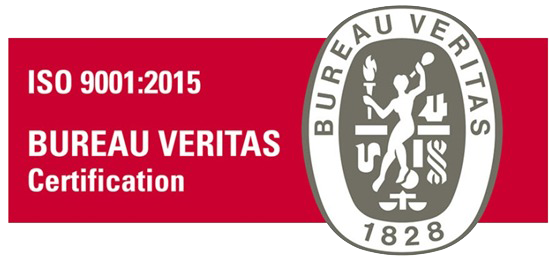
Mastering the Interview Process: Techniques for Assessing Cultural Fit in Saudi Arabia
In the Kingdom of Saudi Arabia, where Vision 2030 is rapidly reshaping industries and creating unprecedented opportunities, attracting top talent is only half the battle. The true differentiator for long-term success lies in assessing and securing candidates who are not just technically proficient, but also a strong cultural fit.
Hiring for cultural fit is always important, but in a unique and culturally rich environment like Saudi Arabia, it becomes paramount. The Kingdom's workplace culture is deeply influenced by Islamic values, traditional customs, and a strong emphasis on relationships, respect, and hierarchy. Overlooking these nuances during the interview process can lead to disengaged employees, communication breakdowns, and ultimately, high turnover.
So, how can interviewers effectively gauge cultural fit in the Saudi context? It requires a strategic and nuanced approach, moving beyond standard behavioral questions to truly understand a candidate's adaptability, respect for local norms, and potential to thrive in this distinct environment.
Why Cultural Fit is Crucial in KSA
Before diving into techniques, let's briefly reinforce why cultural fit holds such weight:
Harmony and Team Cohesion: Saudi workplaces often prioritize group harmony and consensus. A lack of cultural understanding can disrupt team dynamics and create friction.
Effective Communication: Much of Saudi communication is high-context and indirect. Candidates who are adept at understanding subtle cues and adapting their communication style will be more effective.
Respect for Hierarchy and Authority: Deference to seniority and established protocols is vital. Candidates who struggle with this may find it challenging to navigate organizational structures.
Long-Term Retention: Employees who feel comfortable and respected within the cultural framework are more likely to be engaged, productive, and committed to their roles for the long haul.
1. Beyond the Resume: The Pre-Interview Warm-Up (Musayarah)
The Technique: Begin the interview with a period of relaxed, informal conversation before diving into technical questions. This is known as "Musayarah" in Arabic culture – a way to build rapport and establish a personal connection. Discuss general well-being, the weather, traffic, or even positive developments in KSA.
What to Assess: Observe how the candidate engages in this small talk. Do they seem comfortable? Do they reciprocate politeness? Are they genuinely present? This initial interaction can reveal a lot about their interpersonal skills and comfort with Saudi social norms.
Example Observation: A candidate who immediately tries to jump into "business" might indicate a lack of cultural awareness. One who engages pleasantly, asks a polite reciprocal question (e.g., "And how are you doing today?"), and appears relaxed demonstrates good initial cultural attunement.
2. Behavioral Questions with a Cultural Lens
Standard behavioral questions can be tweaked to reveal cultural adaptability.
The Technique: Ask questions that probe a candidate's past experiences in dealing with diverse cultural settings, ambiguity, and indirect communication.
Sample Questions:
"Tell me about a time you had to adapt your communication style to effectively convey a message to someone from a very different cultural background." (Assesses communication flexibility)
"Describe a situation where you disagreed with a senior colleague or manager. How did you handle it?" (Assesses respect for hierarchy and conflict resolution style)
"Walk me through a project where there was a significant delay or unexpected change. How did you maintain productivity and manage your expectations?" (Assesses patience, adaptability to uncertainty, and problem-solving in an environment where things might not always go strictly by plan).
"Tell me about a time you worked in a team where building personal relationships was important for project success. How did you approach this?" (Assesses understanding of relationship-driven environments).
What to Assess: Look for answers that demonstrate empathy, patience, respect, a collaborative spirit, and a willingness to learn and adjust. Avoid candidates who solely focus on direct confrontation or who seem inflexible.
3. Scenario-Based Questions: Simulating the Saudi Workplace
The Technique: Present hypothetical scenarios that mirror common workplace situations in KSA, forcing the candidate to think on their feet and demonstrate their cultural intelligence.
Sample Scenarios:
"You have an important meeting scheduled, but your Saudi colleague, who is crucial to the discussion, needs to leave for prayer. How would you react and manage the situation?" (Assesses respect for religious practices and flexibility).
"You receive feedback from a colleague that is very indirect and hints at an issue rather than stating it explicitly. How would you interpret and address this feedback?" (Assesses understanding of high-context communication).
"Your manager asks you to complete a task by a certain deadline, but you foresee potential delays due to unforeseen circumstances common in local operations. How would you communicate this?" (Assesses communication of challenges while maintaining politeness and respect for authority).
What to Assess: Look for answers that are respectful, pragmatic, and demonstrate an understanding of Saudi customs. A good answer will involve seeking clarification politely, showing patience, and prioritizing relationships while still addressing the task.
4. Observational Cues During the Interview
The Technique: Pay attention to non-verbal cues and overall demeanor throughout the interview.
What to Observe:
Punctuality: While Saudi time can be fluid, an interviewee's punctuality reflects their professionalism.
Dress Code: Is their attire respectful and modest, particularly for female candidates, even if not required by the company for daily wear? This shows awareness.
Eye Contact: Is it appropriate and respectful? Too much direct eye contact can sometimes be perceived differently depending on gender and seniority.
Use of Hands (Left Hand): Observe if they instinctively use their right hand when offering or receiving items. The left hand is considered unclean in Islamic culture.
Body Language: Do they appear open and engaged, or closed off? Do they interrupt?
Patience: Do they show impatience if there are minor delays or interruptions?
Example Observation: A candidate who consistently uses their right hand to hand over a resume or business card, maintains respectful eye contact, and waits patiently for their turn to speak, subtly signals cultural awareness.
5. Asking About Cultural Awareness and Learning
The Technique: Directly ask candidates about their interest in and efforts to understand Saudi culture.
Sample Questions:
"What do you know about Saudi Arabian culture and its business environment?"
"What steps have you taken to learn about working in a different cultural context?"
"What excites you most about living and working in Saudi Arabia?"
What to Assess: Look for genuine curiosity, a willingness to learn, and concrete examples of efforts they've made (e.g., reading books, speaking to people who have worked in KSA, researching local customs). Avoid candidates who express stereotypes or seem uninterested in adapting.
6. The "Gut Feeling" and Multiple Interviewers
The Technique: Don't dismiss your intuition. If something feels off, explore it further. Also, ensure a diverse panel of interviewers, including Saudi nationals, who can provide varied perspectives on cultural fit.
What to Assess: A Saudi national on the interview panel can often pick up on subtle cues and nuances that expatriate interviewers might miss, providing invaluable insights into a candidate's potential cultural integration.
Conclusion
Mastering the interview process for cultural fit in Saudi Arabia is not about finding someone who is "Saudi-like," but rather identifying individuals who demonstrate genuine respect, adaptability, and a proactive willingness to learn and integrate into a distinct and rich cultural environment. By employing these techniques, interviewers can move beyond surface-level assessments to identify candidates who will not only contribute their skills but also flourish within and enrich the unique professional landscape of the Kingdom, driving long-term success for both the individual and the organization.
Follow M. Gheewala Global HR Consultants for Latest Vacancies



